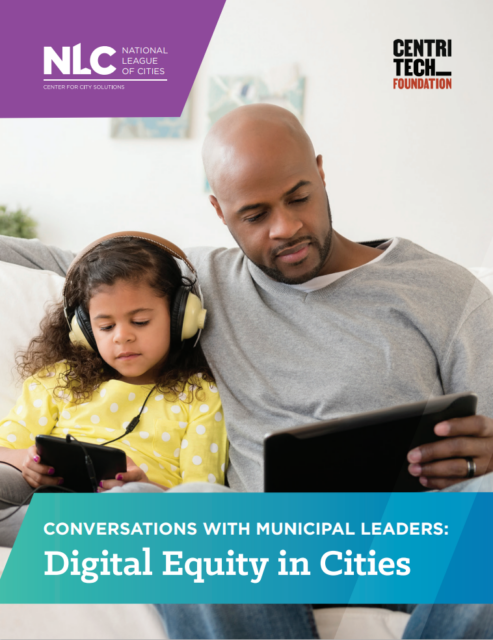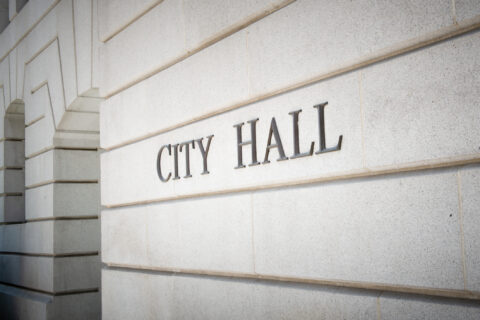When the economy shut down in March 2020 and nearly all activity pivoted online, the need for high-speed internet and devices in the home became urgent and undeniable. However, not everyone had access to this vital tool. But now our nation’s cities, towns and villages are at a turning point. This year, Congress made unprecedented federal investments in broadband infrastructure and digital equity. This moment is not just about installing conduit under streets and fiber on poles — it is about achieving and ensuring digital equity for our country as a whole. Digital access is a civil right.
Conversations with Municipal Leaders: Digital Equity in Cities captures the combined perspectives and experiences of 22 U.S. cities, towns and villages working to achieve digital equity. It identifies the systemic barriers communities must address in their efforts to foster digital equity, particularly for those acutely impacted by persistent racial and economic disparities. It also features actions communities are already taking to help remove these barriers and captures the resources needed to provide digital access.
Achieving digital equity requires cities to address three critical barriers: access, affordability and skills. Three key takeaways that emerged from these cities’ discussions illustrate the current environment for municipal leaders seeking to close the digital divide in their communities:
- Cities face systemic challenges to provide digital access, affordability and skills.
- Cities are taking action to address systemic barriers to digital equity.
- Cities need cross-sectoral support to achieve digital equity.
Download the report to learn more about how cities are approaching digital equity and the support they still need.










